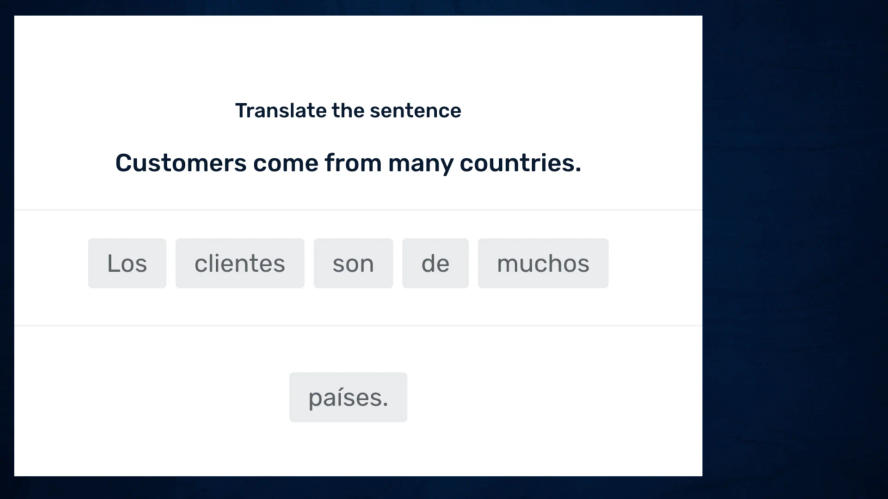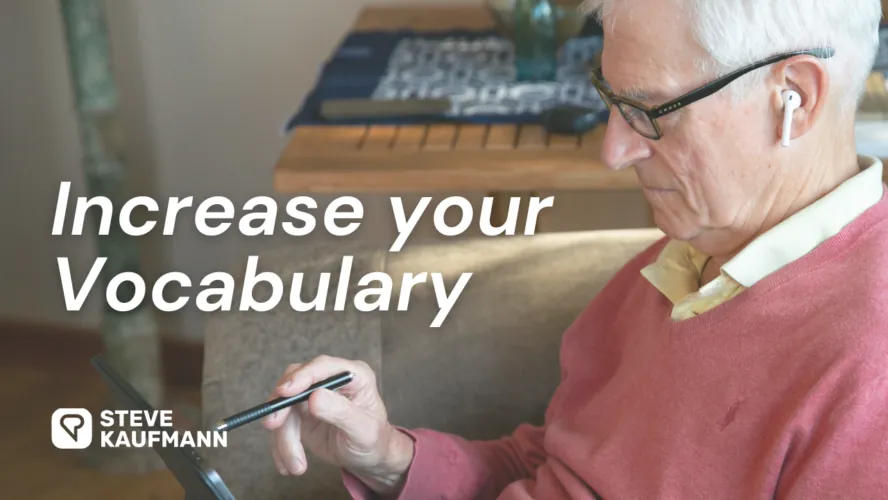If you’ve ever wondered how to improve your vocabulary in a new language, you’re not alone. Language learners constantly ask: What’s the best way to grow vocabulary quickly and effectively? The answer is simple but often overlooked—exposure through reading and listening.
You don’t need to rely on memorization or endless flashcard drills. In this post, we’ll explore how consistent exposure, especially through extensive and intensive reading, helps you acquire vocabulary naturally.
Is Memorization a Good Way to Improve Vocabulary?
Many learners assume that expanding vocabulary entails memorizing long lists of words. This approach is not only tedious, but also inefficient. Why? Well, trying to memorize a word doesn’t mean you understand it. Memorization without context contributes little to your communicative abilities.
Personally, I’ve never had success with rote memorization. I acquire vocabulary by seeing and hearing words in context—again and again. The more I encounter words naturally through content I enjoy, the more they stick. Furthermore, I’m able to use words and phrases more naturally.

What’s the Most Effective Way to Expand Vocabulary?
The key to growing your vocabulary, whether from scratch or as an advanced learner, is consistent, meaningful exposure to the target language. When I read or listen to content in my target language, I don’t aim to understand every single word. I focus on the message. If a word is important or common, I’ll see it again soon.
Over time, repeated exposure builds both comprehension and confidence. This approach allows me to enjoy the language more freely and with less stress. If I forget a word, that’s okay. I don’t need to restrict my reading or review vocabulary. I understand that forgetting and repeating are just part of the process.
Vocabulary acquisition is not a linear process. I’ll forget and look up the same word a handful of times across different contexts. And yet, with each reminder, I’m solidifying my understanding of the word and how it’s used.



On LingQ, you can review your lesson in its entirety or study a text more closely at the sentence-level.
What’s the Difference Between Extensive and Intensive Reading?
Extensive Reading: The Fastest Way to Improve Vocabulary
What Is Extensive Reading?
Extensive reading means reading a lot without stopping to look up every unknown word. You focus on understanding the overall meaning, not dissecting every sentence. This approach helps you develop reading fluency and absorb vocabulary naturally.
Why It Works
-
Extensive reading encourages intuitive understanding of grammar and structure
-
You build a large passive vocabulary
-
You’re dissuaded from interrupting your reading flow
-
There’s an emphasis on enjoying the content (as well as the language)
Stephen Krashen, a leading figure in language acquisition, has long advocated for this method. His research shows that extensive reading leads to real vocabulary growth without deliberate effort.

Intensive Reading: Mining for New Vocabulary
What Is Intensive Reading?
Intensive reading involves slowing down and diving deep. You look up unknown words, review them, and analyze the text. This is especially useful when the material is challenging or when you want to focus on specific vocabulary.
How to Make It Work
-
Use tools like LingQ to read, save new words, and study in context
-
Read shorter texts with rich vocabulary
-
Focus on high-frequency words and expressions
-
Revisit texts to reinforce learning
I often switch between extensive and intensive reading depending on the material and my goal. Sometimes I read for flow; other times I dig into “mine” words and phrases. Find the balance that works for you.
Should I Use Flashcards to Learn Vocabulary?
While I don’t rely on flashcards for memorization, I do use them occasionally for additional exposure. On LingQ, for example, I’ll glance at words and sample sentences to refresh my memory. But I don’t test myself. I don’t use flashcards for active recall. The goal isn’t to produce a word under pressure—it’s repeated contact.
Vocabulary acquisition isn’t about perfection. It’s a matter of volume and exposure. Keep reading, keep listening, and your active vocabulary will grow over time.
Final Thoughts: Vocabulary Is Acquired, Not Memorized
You don’t need a perfect memory to learn a language. What you need is consistent exposure to content that challenges you, interests you, and keeps you coming back.
-
Read every day—sometimes extensively, sometimes intensively
-
Listen often, even if you don’t understand every word (The intensive versus extensive approach can also apply to listening!)
-
Use tools like LingQ to track, review, and enjoy the process
Over time, your vocabulary will grow. Not because you forced it, but because you exposed yourself to it—again and again, in meaningful contexts.
___________________________________________________
FAQs
Why is Learning Vocabulary Important?
A language learner needs words. And lots of them! You can communicate despite imperfect grammar. But there’s no way around a lack of words.
Can You Learn a Language Just by Memorizing Vocabulary?
Memorizing isolated words won’t help much unless you encounter them in context. Just knowing the translation isn’t enough. Learn how the word is used and understand its nuanced meaning(s).
When Should I Focus on Memorizing Vocabulary During Language Learning?
Increasing your vocabulary is a logical goal during any stage of language learning. However, I wouldn’t recommend memorization drills. Forced recall serves mostly for short-term performance on assessments.
How Can You Learn Vocabulary in Context?
Immerse yourself in content you enjoy. Look up a word every now and then when you’re curious, but just maximize the amount of time you spend with the language.
How Does LingQ Help Me Memorize and Retain New Words?
LingQ helps you find content you enjoy, review what you’ve read or listened to, and approach content intensively with greater ease and efficiency.







